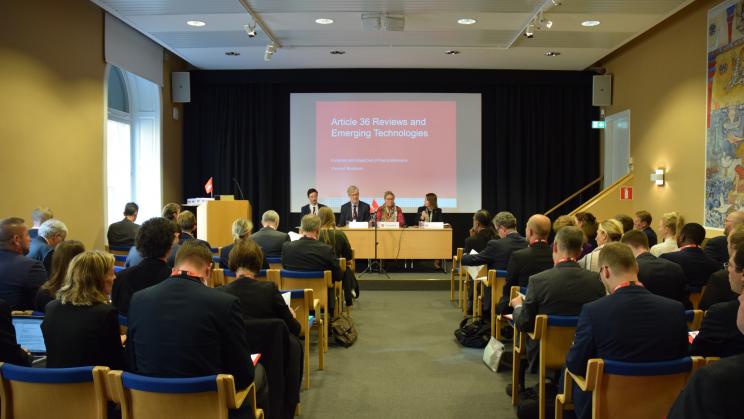
SIPRI hosted a conference on 20–21 September to explore the challenges posed by emerging technologies to the legal review of weapons, and means and methods of warfare. This was part of SIPRI's research on the impact of emerging technologies on armament, arms control and disarmament.
The conference focused on three key emerging fields of technology: (a) cyber-technologies, (b) artificial intelligence and robotics, and (c) human enhancement technologies. Its aim was to support increased cooperation and information sharing by providing practitioners and civil society experts with an opportunity to learn about new technologies; discuss the technical, legal and operational issues raised by emerging technologies in the context of Article 36 reviews; and identify concrete solutions to help to strengthen compliance with the requirement of Article 36.
The conference was hosted in partnership with the Swedish Ministry for Foreign Affairs, the Ministry of Foreign Affairs of the Netherlands and the Department of National Defence of Canada, and was attended by 75 experts from both government and civil society. Governmental experts included legal review practitioners, legal advisers from defence ministries and diplomats working with international humanitarian law or arms control issues. Civil society experts included eminent scholars and representatives from non-governmental organizations working with arms control and humanitarian issues.
About Article 36
Article 36 of the 1977 Additional Protocol I to the 1949 Geneva Conventions imposes a practical obligation on states to prevent the use of weapons, and means and methods of warfare that violate international law by employing a review mechanism. This type of mechanism is commonly referred to as a ‘weapon review’, ‘legal review’ or ‘Article 36 review’. Only a limited number of states are known to have a review mechanism in place.